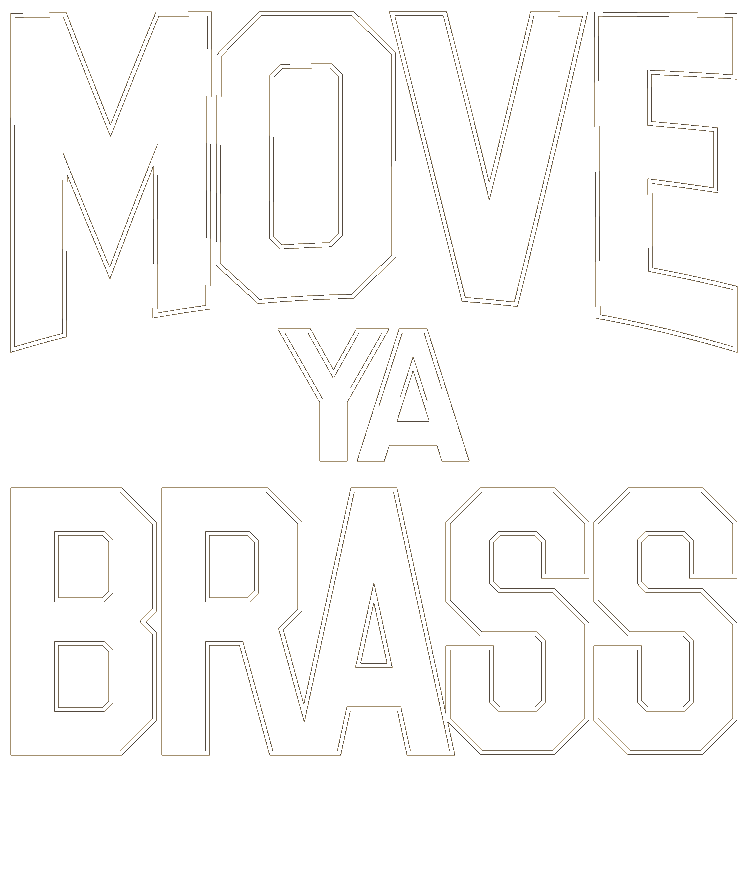Runners are constantly hearing about the importance of staying hydrated. Even people who don't work out need to be mindful of it, especially as the temperatures rise during the summertime. But is it as simple as just drinking water all day? Move Ya Brass spoke with Lauren Hulin, Registered Dietitian with Ochsner's Eat Fit NOLA, to find out.
Move Ya Brass: What's the number one thing runners should be doing to stay hydrated?
Lauren Hulin: A runner should never go into a run dehydrated. It is important to drink fluids throughout the day. Runners should also be aware of their electrolyte levels. If the athlete sweats a lot, they can potentially have low stores of electrolytes in their body. They should ensure their diets have sodium, calcium, magnesium and potassium in it. If the runner is not able to get adequate electrolytes through their diets, supplementing is key. The NUUN tablets are really great — it is just electrolytes that can be added to your water. ICONIC is another product that has a lot of electrolytes in it plus protein, which would be great post workout.
MYB: What about leading up to a race?
Hulin: As I mentioned earlier, it's very important to never go into the race dehydrated. The Academy of Nutrition and Dietetics recommends the amount of ounces of fluid you should be drinking a day is a simple formula: your body weight in pounds divided by two equals the amount of ounces of fluids [you should be drinking a] day. Water should be the majority of fluid ounces. Make sure you are getting enough water and electrolytes prior to a race.
MYB: What are the signs of dehydration?
Hulin: There are various ways to tell if you are dehydrated. Signs of dehydration can include being thirsty, feeling dizzy or lightheaded, cotton mouth, dry skin, tired/lack of energy, color and amount of time you are urinating — you want to aim for “light hay” colored urine and urinating every 2-3 hours or less. If your pee is the color of apple juice or darker, or even smelly, [it is a] big sign you are dehydrated.
MYB: What's the biggest misconception about hydration?
Hulin: A misconception is that water is enough to rehydrate you after a long run. To be clear, sometimes water is enough to rehydrate after a run, but after a long run in hot weather, you will need to replenish your electrolytes as well. There is no way to “preload” your electrolytes before a run. What your body does not need, you will pee it out. It is best to replenish after your run.
MYB: Are there any foods that aid in hydration?
Hulin: Foods with sodium, potassium, magnesium and calcium will help with replenishing electrolytes. Turkey, cottage cheese with fruit, V8 and turkey pho with vegetables are all good options to eat that will aid in hydration.
MYB: Any tips for injury prevention?
Hulin: To prevent injury, make sure you are warming up, stretching after and listening to your body. If something does not feel right — it probably isn’t. From a food perspective, ensuring your diet is full of vegetables, fruits, lean meats, whole grains and fluids.
MYB: Does your advice differ for non-athletes?
Hulin: This advice can be used for everyone. As the temperature gets hotter and you are doing activities outside, it is important to be aware of the signs of dehydration and how to combat it.
MYB: How is hydration affected by alcohol?
Hulin: Alcohol can dehydrate you. My recommendation would be to pair your alcohol with water, soda water — LaCroix, bubly — or Kombucha that can offset the dehydration effects of alcohol. More important though, make sure you are not excessively drinking alcohol and drink a glass of water in between your alcoholic beverages.
MYB: Final advice for athletes when it comes to hydration?
Hulin: Know the warning signs of dehydration and make sure you never go into a run or intense workout dehydrated. Drink throughout the workout/run. If you feel yourself becoming very tired and lightheaded, take a break, listen to your body and refuel with proper nutrition.
- Lori Wilson
Follow me on Facebook, Instagram and Twitter


